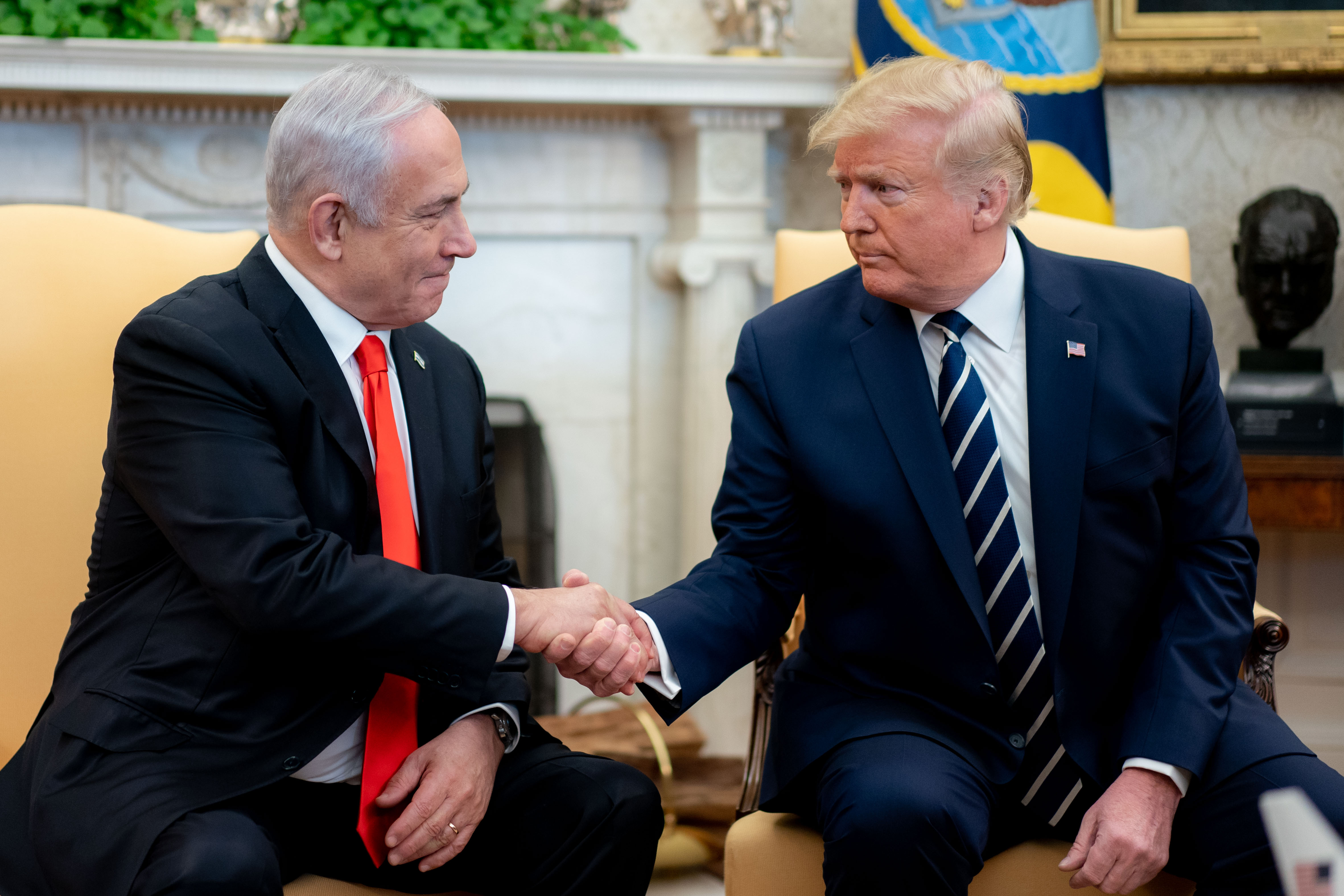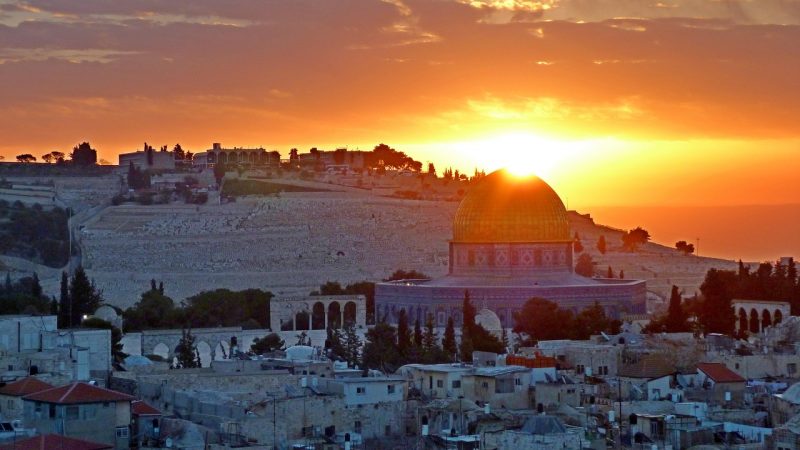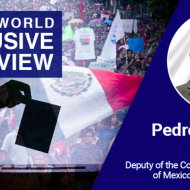73 years after the UN resolution 181 on the partition of Palestine between Arabs and Jewish settlers, the Palestinian question seems to be facing two paradoxical fates, resolution, or movement into a new bloody turmoil. The so called “Deal of the Century” presented by US President Donald Trump purports to be a solution to the question of coexistence. The solution which he calls “the deal of the century” is based on the assumption that peaceful coexistence between Israelis and Palestinians can be achieved based on survival of the fittest rather than justice.
According to the terms of the deal, the Israelis will take most of what they want and give up almost nothing. They will take 85% of Palestine including Jerusalem and 30% of the West Bank, and be given 100% control of the security and defence of Palestine. The Palestinians are expected to be satisfied with less than 15% of the territory they consider theirs (70% of the West Bank and an enlarged Gaza Strip), with the areas they are granted being scattered, divided and under Israeli control. The plan offers no right of return, no sovereign state, no armed forces and even requires Palestine to pay the Israelis for their defence. Effectively, the Two State Solution is dead, and the projected Palestinian entity will be no more than a small and geographically divided area.
The deal was crafted carefully in Israel, not the US, and now has the blessing of the White House and a presidential seal. The deal suggests that the Palestinian – Israeli conflict can be divided into two separate disputes. The first is territorial, and concerns disputes over security and refugees. The Second is the religious dispute between majority Muslim Arabs and the Jewish people. Moreover, the approach to the conflict is based on a problem solving business model with no connection to history or politics.
In order to read and understand the DEAL’s official document titled: (Peace to Prosperity: A Vision to Improve the Lives of the Palestinian and Israeli People), one has to realise its logic, approach, tools and dynamics. Whether or not one agrees with the plan, it is critical to understand its logic.

President Donald J. Trump and Vice President Mike Pence participate in an expanded bilateral meeting with Israeli Prime Minister Benjamin Netanyahu Monday, Jan. 27, 2020, in the Oval Office of the White House. (Official White House Photo by D. Myles Cullen)
The denial of history
The three main principles that make up the foundations of the deal are the denial of history, a denial of the Palestinian national identity and the survival of the fittest. The denial of history concerns the Israeli occupation of Palestinian land and the various UN Resolutions regarding the conflict. The document reflects a deep disdain for historical precident, especially the history of the Palestinian people, seeing the entire affair as little more than a business project.
This approach has been justified on the basis that previous plans to settle the dispute were proven “unachievable” and subsequently failed. The search for a practical and achievable solution to the Israeli – American peace therefore ignored the history of the conflict altogether.
For instance, the document denies all past UN Resolutions in connection with the conflict. Although the UN Resolutions have existed for some time, they have not been enforced as of late. History teaches us that realities on the ground have the power to kill and bury idle resolutions. The Arab Israeli conflict provides us with a clear illustration of the primacy of everyday reality over legal precedent. The Arab-Israeli War of May 1948 killed and buried UN Resolution of the Partition No. 181/1947. The 1967 War created new realities on the ground and subsequently UNSC Resolution 242/1967, then came 1973 War and the UNSC Resolution 338/1973. The Oslo Accords (1993, 1994) practically ignored past UN Resolutions and called for new adaptation of them. In ignoring history, the deal of the century is employing the failures of past resolutions in favour of Israel.
The Deal of the Century ignores any solution based on a return to pre-1967 War positions. Alternatively, it presents the Palestinians with a “solution” where “better conditions” are all they can hope for in a life under Israeli control. In order to sweeten the proposed solution and make it acceptable, it has been labeled as “Realistic Two-State Solution.” The clear message to the Palestinian people is: forget about history, politics and your national identity and aspirations.
A business approach
The proposed solution purports to “unlock the vast human potential and economic opportunity that peace will bring to Israelis, Palestinians, and the region as a whole.” This is a vision for a business project which provides solutions based on problem solving, free of history, values, national identity and politics. With this approach, the superior power decides the plan, and the inferior side follows it with their hands tied. The approach is based on a Darwinian principle of superiority and the survival of the fittest.
Furthermore, for the Palestinians to get their so-called state, they must first be approved by the Israel state. Over four years, according to the deal, they have to negotiate with the Israelis and prove themselves fit for peace, democracy and good governance. If proven otherwise, Israelis will continue their expansion into whatever is left of the West Bank and annex more of it. This means that the rest of the Palestinian land will be up for grab. If so, there will be nothing left to negotiate within four years time.
The denial of the Palestinian people’s right to self determination, the sedimentation of Israeli control over the whole of Palestine from the Jordan River to the Mediterranean, and the erasure of the Palestinian people’s aspiration to establish a sovereign state are cause for mass conflict throughout the region. If the world wants long lasting and just peace, it must be established based on the principles of international law and the process must take direction from past conflict resolutions. By empowering the aggressor and denying the history, national identity and aspirations of the Palestinians, the chances for peace are slim. The right path to a just and lasting peace is a viable two-state solution based territorially on pre-1967 positions and the relevant UNSC resolutions. Israelis and Palestinians can live in peace and together, they can share prosperity and lead the whole region to peace and stability.
Palestinian’s Dilemma
Sadly, most Arabs powers have no voice and no power to help the Palestinians realize their national aspirations and establish their own sovereign state on their land. Not only are Arab states powerless, they even play a negative role, politically infecting and physically dividing the Palestinians with their sick ideas and contaminated money. Since the beginning of the Palestinian’s plight, Arab rulers have been more interested in using the Palestinian cause to prolong their reigns while deeping the suffering of their own people. Although the Arab League rejected the Israeli-American deal, Arab governments have no alternative to offer.
The deal is explicit about the critical role of normalization of relations between Arab and Israeli governments in paving the way for peace in the region parallel to solving the territorial dispute between the Palestinians and the Israelis. According to the characterisation of the conflict in the deal, the two disputes (territorial and religious) should be resolved intandem. The leaders of Israel and USA see more potential in the normalization of Arab-Israeli relations than they do in achieving peace.
With the Palestinian resistance to the deal in sight, major international powers, with the exception of the US, are moving to establish new diplomatic positions. The EU, Russia and China are calling for just and durable peace and to respect past UN Resolutions. However, judging from the past experience, all their calls will prove worthless without any power to establish new realities on the ground.
The Israeli occupation is a deeply sad fact of our contemporary world, and ending it seems further away than it has been for decades. The Palestinians will decide their future on their own terms: whether to negotiate the deal despite its apparent deficits or continue fighting for their national aspirations. In either case they will have to become unified under a new, accountable and honest leadership. The right choice for the future is not always ideal, it is often simply what is practical and achievable.









Leave a Reply